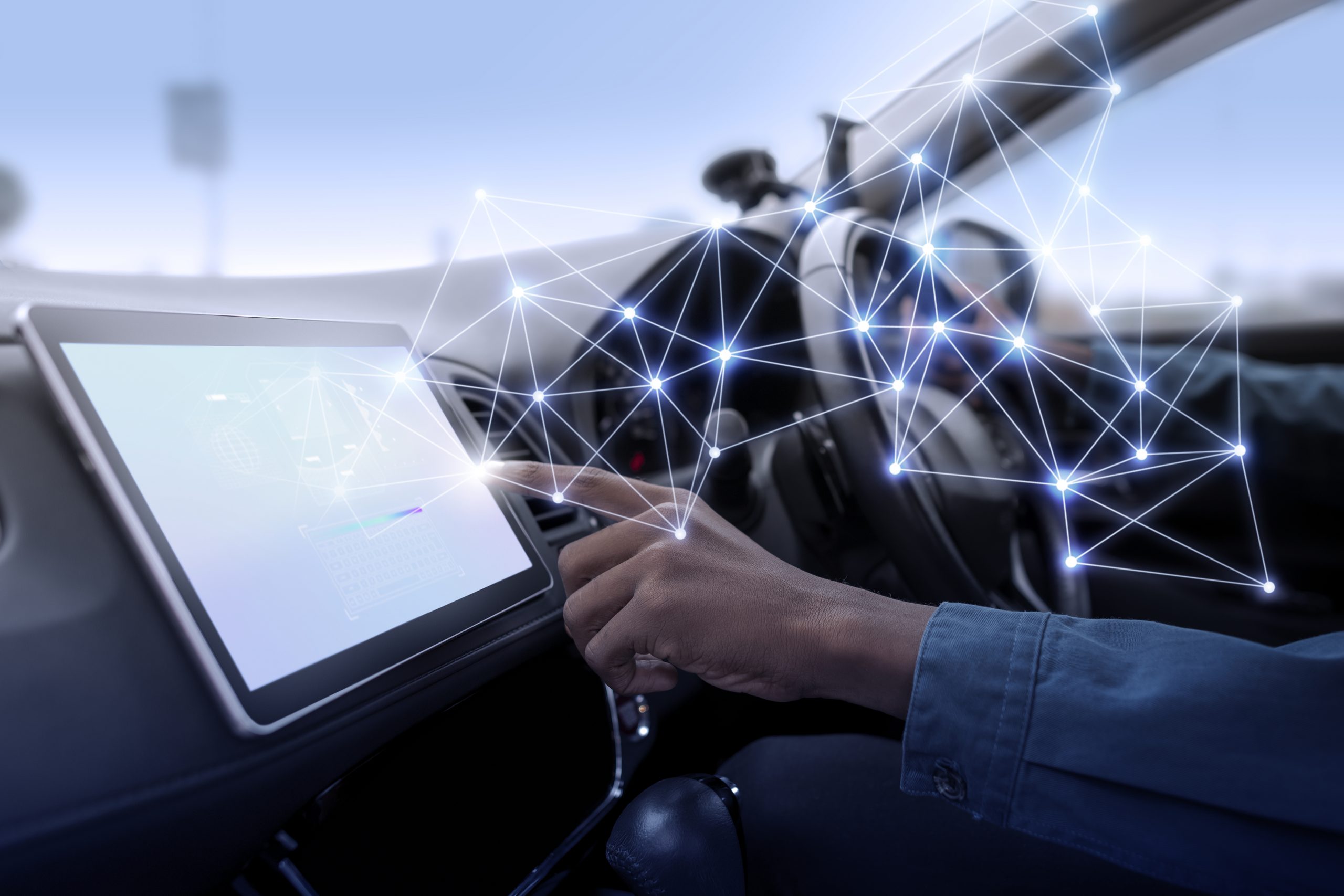ai in self driving vehicles

AI in Autonomous Vehicles
artificial intelligence in self-driving vehicles
AI plays a crucial role in the development and operation of autonomous vehicles (AVs), commonly known as self-driving cars. These vehicles leverage artificial intelligence technologies to perceive their surroundings, make decisions, and navigate safely, with the potential to significantly impact transportation in various ways. Here’s an overview of the role of AI in autonomous vehicles and its potential impact on transportation:
=1. Perception and Sensing:=
– =Sensor Fusion:= AVs are equipped with a variety of sensors, such as lidar, radar, cameras, and ultrasonic sensors, to perceive their environment. AI algorithms, particularly computer vision and deep learning, process data from these sensors to detect objects, pedestrians, road signs, and other vehicles.
– =Real-time Mapping:= AI helps create and update high-definition maps in real time, which are essential for AVs to navigate accurately and safely.
ai in self driving vehicles
=2. Localization and Mapping:=
– =SLAM (Simultaneous Localization and Mapping):= AVs use AI-driven SLAM algorithms to simultaneously build maps of their surroundings and determine their precise location within those maps, allowing for accurate navigation.
=3. Decision-Making and Planning:=
– =Behavior Planning:= AI algorithms assess the vehicle’s surroundings, predict the behavior of other road users, and make high-level decisions, such as lane changes, merging, or yielding.
– =Path Planning:= AI determines the specific path the AV should follow, considering factors like traffic conditions, road rules, and the destination.
=4. Control Systems:=
– =Vehicle Control:= AI-based control systems ensure that the AV executes the planned actions smoothly and safely, adjusting speed, acceleration, and braking as necessary.
=5. Connectivity and Communication:=
– =V2V (Vehicle-to-Vehicle) and V2X (Vehicle-to-Everything) Communication:= AI enables AVs to communicate with each other and infrastructure elements, sharing important information about traffic conditions, road hazards, and more.
ai in self driving vehicles
 buy
buy
Campus Mens Ignite Pro Running Shoes
=Potential Impact on Transportation:=
=1. Safety:= One of the primary goals of autonomous vehicles is to reduce accidents caused by human error. AI-driven AVs can react faster and more consistently than humans, potentially leading to a significant reduction in road accidents.
=2. Traffic Efficiency:= AVs can communicate and coordinate with each other, leading to smoother traffic flow, reduced congestion, and decreased travel times. AI can optimize routes to avoid traffic jams and choose the most efficient paths.
=3. Accessibility:= Autonomous vehicles have the potential to improve mobility for individuals with disabilities, the elderly, and those who cannot drive. They can also provide last-mile transportation solutions in areas with limited public transportation options.
=4. Environmental Impact:= AVs can be programmed to drive more efficiently, reducing fuel consumption and emissions. Moreover, the adoption of electric AVs can contribute to further environmental benefits.
=5. Urban Planning:= As AVs become more prevalent, city planners may need to rethink urban infrastructure, including parking spaces and traffic management systems. AI can help optimize these changes for maximum efficiency.
ai in self driving vehicles
=Challenges:=
Despite their potential benefits, the widespread adoption of AVs also faces significant challenges, including legal and regulatory hurdles, cybersecurity concerns, and public acceptance.
In conclusion, AI is a fundamental technology in the development of autonomous vehicles, with the potential to revolutionize transportation by improving safety, efficiency, and accessibility. However, addressing the technical, regulatory, and societal challenges is essential for realizing these benefits and ensuring a smooth transition to an AV-dominated transportation landscape.
ai in self driving vehicles
FAQ
What is the AI in autonomous vehicles Tesla?
suggestion
ai in self driving vehicles
The AI technology in Tesla’s autonomous vehicles is often referred to as “Tesla Autopilot” or simply “Autopilot.” It is a sophisticated system that combines various AI components, including computer vision, machine learning, and sensor fusion, to enable features like adaptive cruise control, lane-keeping, and advanced driver assistance capabilities. Tesla continually updates and improves this AI technology through over-the-air software updates.
What is the use of AI in vehicles?
suggestion
ai in self driving vehicles
The primary use of AI in vehicles, whether they are cars or ships, is to enhance safety, efficiency, and automation. In short:
In Ships: AI is used for autonomous navigation, collision avoidance, route planning, weather forecasting, and cargo management. AI systems help ships operate more safely and efficiently, reducing human error and improving overall performance.
In Vehicles (Cars): AI is used for features like advanced driver assistance systems (ADAS), self-driving capabilities, predictive maintenance, and traffic management. It aims to improve road safety, reduce congestion, and enhance the overall driving experience.
How is AI used in electric vehicles?
suggestion
ai in self driving vehicles
AI is used in electric vehicles (EVs) for various purposes, including:
1. Battery Management: AI optimizes battery performance, extending range and lifespan.
2. Charging Efficiency: AI helps EVs charge faster and smarter.
3. Energy Management: AI balances power usage for improved efficiency.
4. Driver Assistance:AI enhances safety and convenience features.
5. Range Prediction: AI estimates remaining range accurately.
6. Regenerative Braking: AI optimizes energy recovery during braking.
Overall, AI makes electric vehicles more efficient, user-friendly, and sustainable.
What is the future of AI in cars?
suggestion
ai in self driving vehicles
The future of AI in cars is “Autonomous.” AI will enable fully self-driving cars, enhancing safety and convenience.
Why is AI important for Tesla?
suggestion
ai in self driving vehicles
AI is crucial for Tesla because it powers their advanced driver-assistance systems (ADAS) and autonomous driving features, making their vehicles safer and more innovative.
what is AI // क्या है ai //type of ai
Reinforcement learning- (RL)-What is RL in reinforcement?-introduction